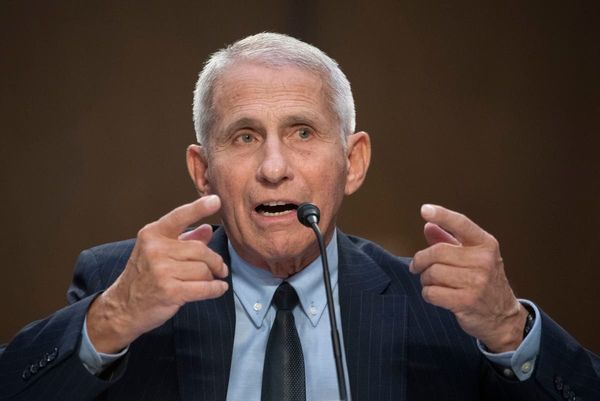
The future of the automotive industry is dependent on two things: batteries and software. Unfortunately, General Motors spent much of 2023 fumbling both. Now, as it prepares to launch some crucial electric vehicle models into a much more uncertain market, CEO Mary Barra says the biggest challenges of the Ultium revolution are in the past. That's a bold claim to make, and we'll soon see if she's right.
Welcome back to Monday morning, and your Critical Materials roundup of what matters in the world of automotive, technology and mobility. Also on deck today: Kia is also increasing its portfolio of hybrid models, and a look at what exactly went "wrong" with Mercedes-Benz's EV push. (You can probably guess.)
30%: Has GM Beaten Its Ultium Quality Issues?

Barra is confident that the automaker is out of the woods on the worst of the EV quality issues, she said in a new and expansive interview with The Detroit News. (The same interview where she confirmed that GM's plug-in hybrids will return to the U.S. market in 2027.) At the same time, there's a lot less of the initial "How hard can it be?" attitude the automaker seemingly took early on with building cars centered around batteries and EVs:
Last year, it really was starting brand new lines with a brand new supplier making (battery) modules. We're a company that has a deep manufacturing background, but I think in hindsight, we should've had more focus on doing something that was relatively new for us with the cells but it's behind us now, those lines have ramped, we're right on schedule to what we said we're going to be. It's not an issue now.
A primer, if you need it: GM intended to launch its big all-electric future push last year, but the rollouts of several models—the Cadillac Lyriq, Chevy Blazer EV and others—were delayed and deterred by production issues with the battery cells and then software problems. One of InsideEVs' own writers was left stranded when a then-new Blazer EV bricked itself at a fast-charger. Since then, GM has worked through both issues, including the latter with rigorous multi-region testing that spanned months.
Let's hope for GM's sake that the worst is behind it, because it's set to launch some crucial EV models soon: the Chevrolet Silverado EV RST and the Chevrolet Equinox EV, both of which you will see First Drive reviews and videos of this week and next on InsideEVs.
But there's also the question of EV demand in 2024; the Equinox EV in particular seems priced to be a real hit. So can GM convince its customers to jump ship, or will it face an oversupply and have to engage in fire-sale price cuts?
Barra hopes to avoid both:
As we move forward, we're going to build to demand. We now have the capability: Factory Zero is up and running, Spring Hill is up and running, Ramos is launching. With our EVs, we're going to make sure we don't overbuild and we manage our days supply because we think we've got desirable EVs, and we want to make sure we protect those vehicles from a pricing perspective, from a residual perspective, and not get into what's happened in other regions and frankly, in some cases here, of the markdowns because that really impacts your residual value and it hurts the brand over the long period.
I don't think any of the long-term investments GM has made in EV plants and owning its battery supply chain are going anywhere, but the question is more of where it will put its focus in the near-term.
60%: Kia Also Aims For More Hybrids, PHEV Models In U.S.

But if you're an EV advocate, you can't help but be frustrated with at least a few of these automakers. After a couple of uneven quarters of EV growth, many of them are getting cold feet and walking back their big all-electric promises, pivoting to hybrids instead and talking about offering the customer "choice" until they're "ready." It's a big reversal from the big talk they all had a few years ago.
We can't accuse Kia, or the larger Hyundai Motor Group, of lagging on EVs. It makes some of the best all-electric models in the world right now, and certainly some of the best for sale in America. But even Kia sees hybrid and plug-in hybrid powertrains as part of the equation more and more, Automotive News reports, from a new interview with Kia America COO Steve Center:
In a Cox Automotive study released last week, nearly half of all in-market car shoppers say they aren't interested in EVs, and 54 percent of the group, which are three to five years away from a purchase, cite the lack of charging stations as the No. 1 barrier.
"People need to be comfortable that they're not going to get stranded," Center said. "We put the money up, we built the factories, we built the cars and now we're selling them, but the infrastructure should have been there first," he said.
Kia already has three electric vehicles in the U.S. — the subcompact Niro EV, compact EV6 and three-row EV9 crossover. A more affordable EV3 subcompact crossover is expected to go on sale mid-2025.
"We have many of the early adopters already in EVs, so now we've got to get to the intellectually curious and a little more risk averse," Center said.
There are a lot of EV myths at work in that section above, and you certainly can't count on the car dealers to help dispel them. And again, Kia is doing more there than most; the Kia EV3 makes its debut this week and that could be a real game-changer in the space.
But as the automakers face tightening fuel economy and emissions rules everywhere, hybrids will be how they stay in the game:
Kia is working on a new hybrid engine that will come in two sizes — subcompact/midsize and large — that will improve on power, torque and fuel economy compared with the existing system.
"A lot of our hybrids are very small engines with turbochargers, which perform great, but a larger engine maybe doesn't need a turbocharger. You just want a bigger hybrid motor," Center said, adding that a vehicle like the Telluride needs more power.
Kia's popular Sportage compact and midsize Sorento crossovers offer a hybrid and PHEV model, and the Niro subcompact crossover only comes with electrified powertrains: a hybrid, PHEV and EV.
Center did not disclose whether the popular Telluride was in consideration for a hybrid powertrain. But he said it will get a new chassis for the next generation. Many dealers say that customers frequently ask for a hybrid Telluride.
You do have to admit that a hybrid Telluride would probably sell like crazy.
90%: Was The Mercedes EQS A Historic 'Flop'?

One of the automakers with real "We've tried nothing, and we're all out of ideas" energy is Mercedes-Benz, which seems to be in EV retreat mode after buyers didn't warm up to those EQ cars the way they expected.
Okay, maybe that's unfair. Mercedes is still a class leader in software, Level 3 automated driving assistance and it's taking steps to build out a better charging network itself. But Bloomberg is examining why the EQS sedan, in particular, is struggling:
Capacious S-Class limousines have chauffeured political and business leaders for decades, and are especially popular with Chinese elites. However, Mercedes opted for a less boxy design for the EQS, which was built on technical underpinnings developed specifically for EVs. Not only would the curved silhouette — which the company immodestly compared to a bullet train and critics dubbed a jellybean — reduce air resistance and thus boost efficiency and driving range, the EQS would also be clearly distinguishable from vehicles that have a combustion engine. Mercedes even sacrificed the traditional standing three-point star on the hood, instead integrating the badge into a sleek black radiator panel.
In hindsight, these were poor design choices. Mercedes’s pampered clientele aren’t as bothered about driving range and aerodynamics as they are about opulence and having sufficient room to relax in the back seats, which critics say the coupe-like rear fails to provide.
[...] However, premium carmakers won’t persuade more consumers to go electric unless they also fix their horrible residual values. The cost of purchasing a one-year old EQS is almost 48% lower than the average new price, according to a study by US auto search portal iSeeCars. That’s the worst of any vehicle it analyzed.
I think the key part is this:
I’m certainly not suggesting that Mercedes and its peers lessen the pace of innovation — given the rapid advances of Chinese rivals, they need to move faster if anything — yet they should tread carefully when electrifying popular models to avoid turning off hesitant customers and compromising their heritage.
Exactly. Mercedes cannot take these cars' tepid receptions to mean customers don't want EVs, or that it can hinge its future on internal combustion—a technology the automaker internally seems more reluctant to part with than others. But they do need better designs, and the updated EQS is kind of putting lipstick on a pig.
I am still very partial to the EQE sedan, but I am regularly informed by my staff that this is "one of my worst takes" and to "please shut up."
100%: Are Plug-In Hybrids Really The Answer?

As I've written here before, I'm pro-hybrid. If you want to reduce emissions and gas use, and maybe don't live in a region with enough public charging yet, they're a stellar option. I'm just slightly skeptical of this big bet on PHEVs in particular. Are people actually going to plug them in?
The best-case scenario is a big increase in Level 2 and home charging for these cars as they get more popular. Instead, I fear people just won't charge them, and that will lead to more gas use and emissions from engines having to lug around dead batteries. What do you think?
Contact the author: patrick.george@insideevs.com







